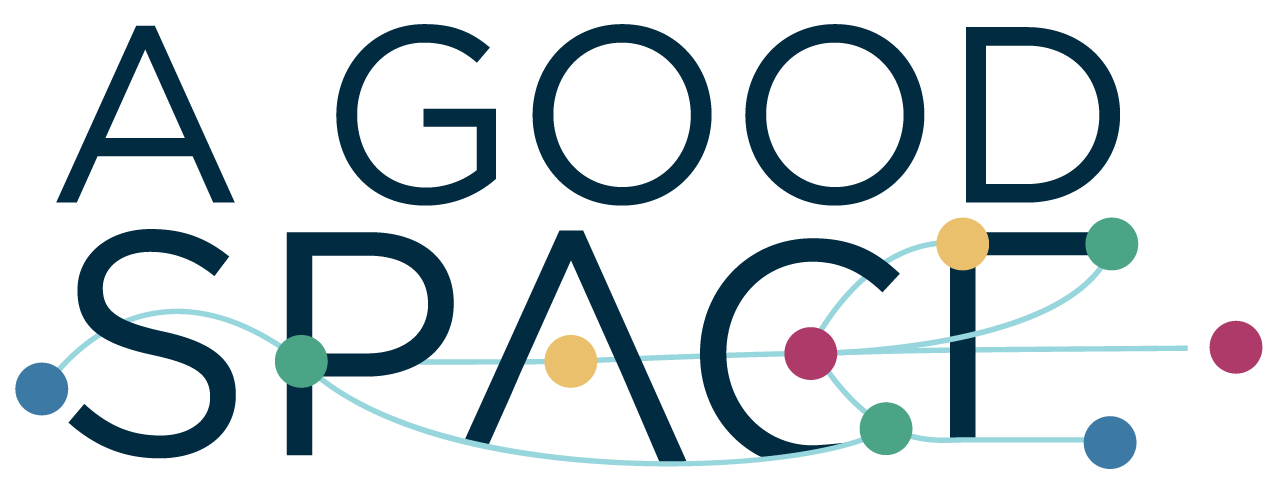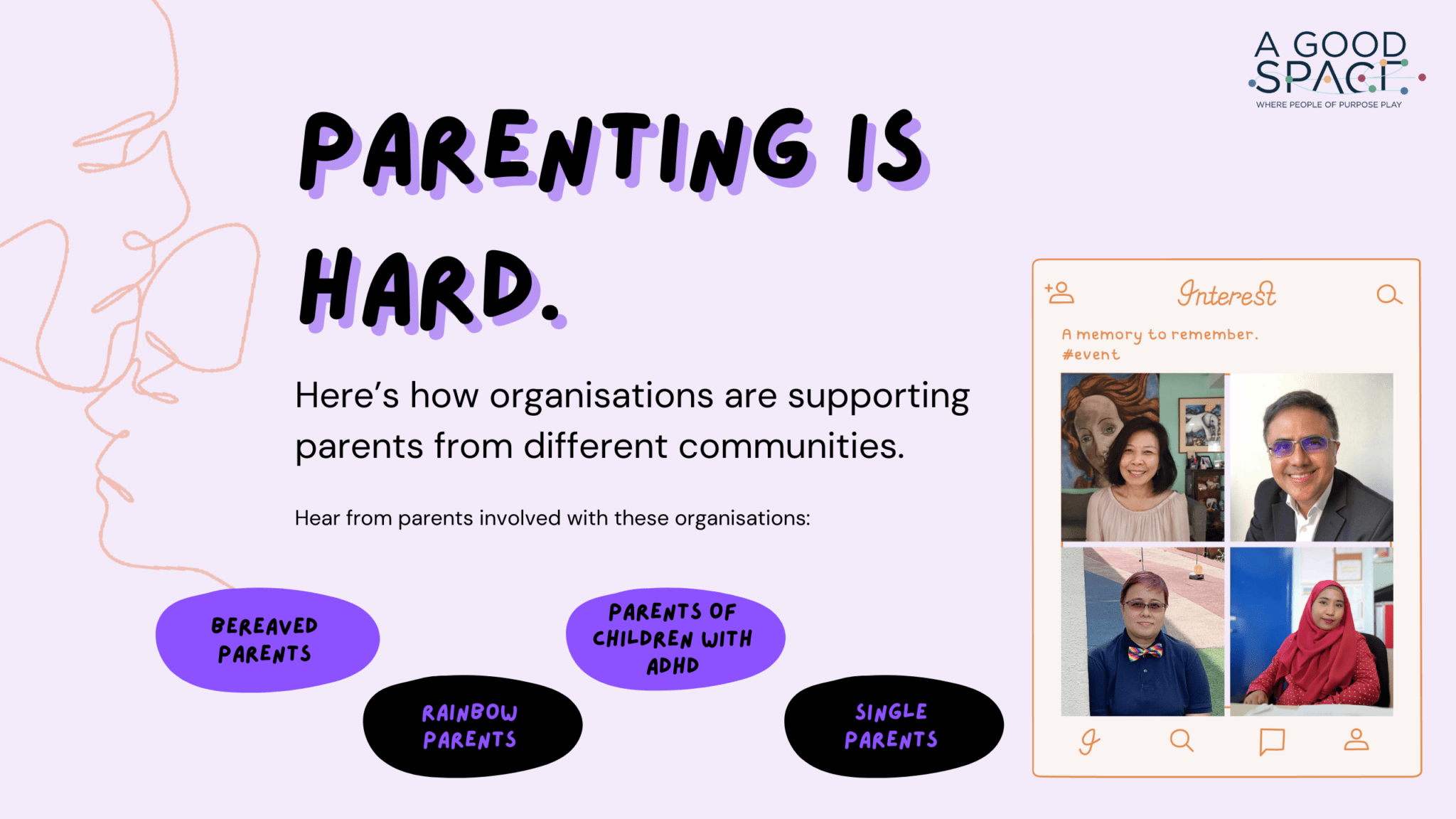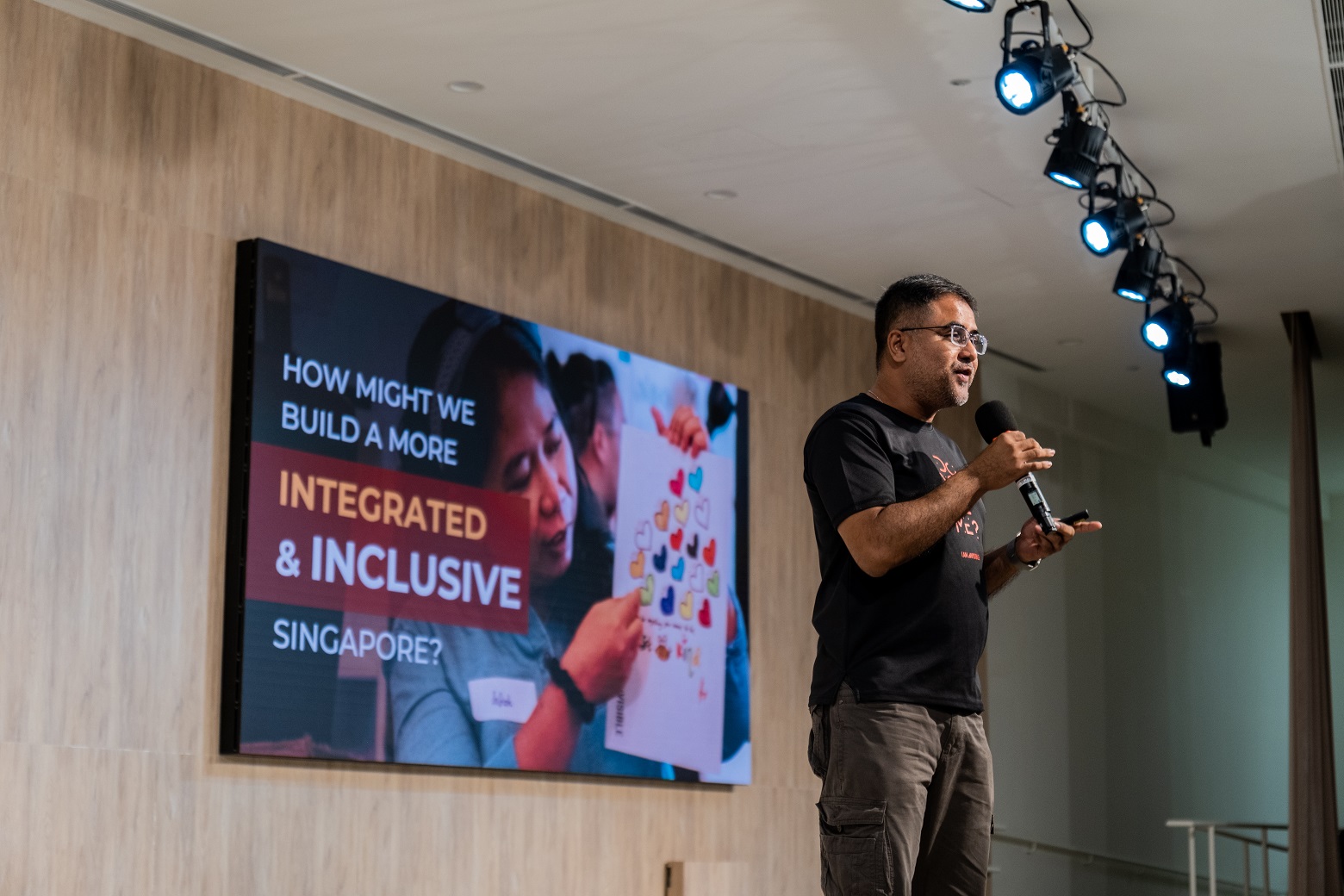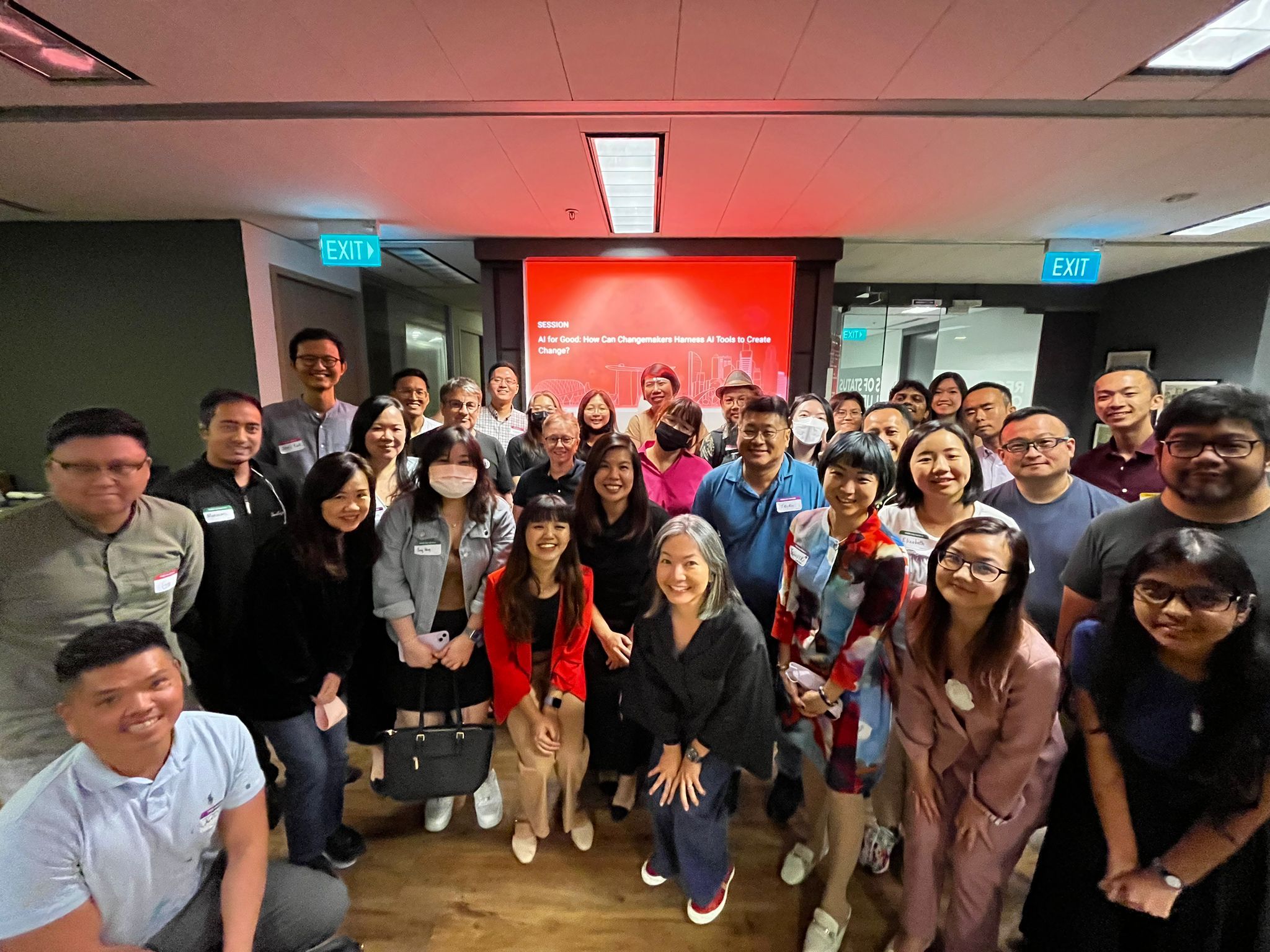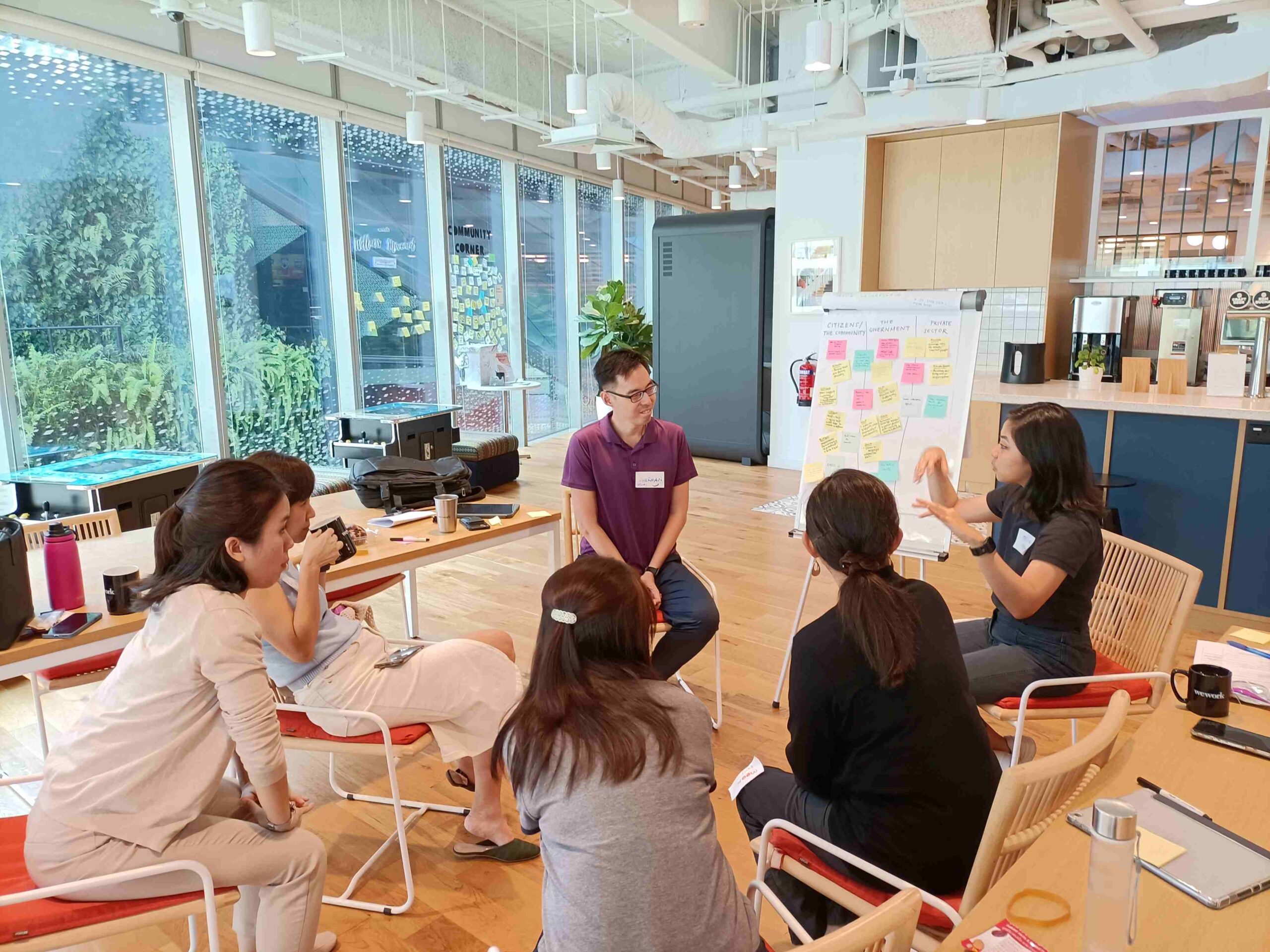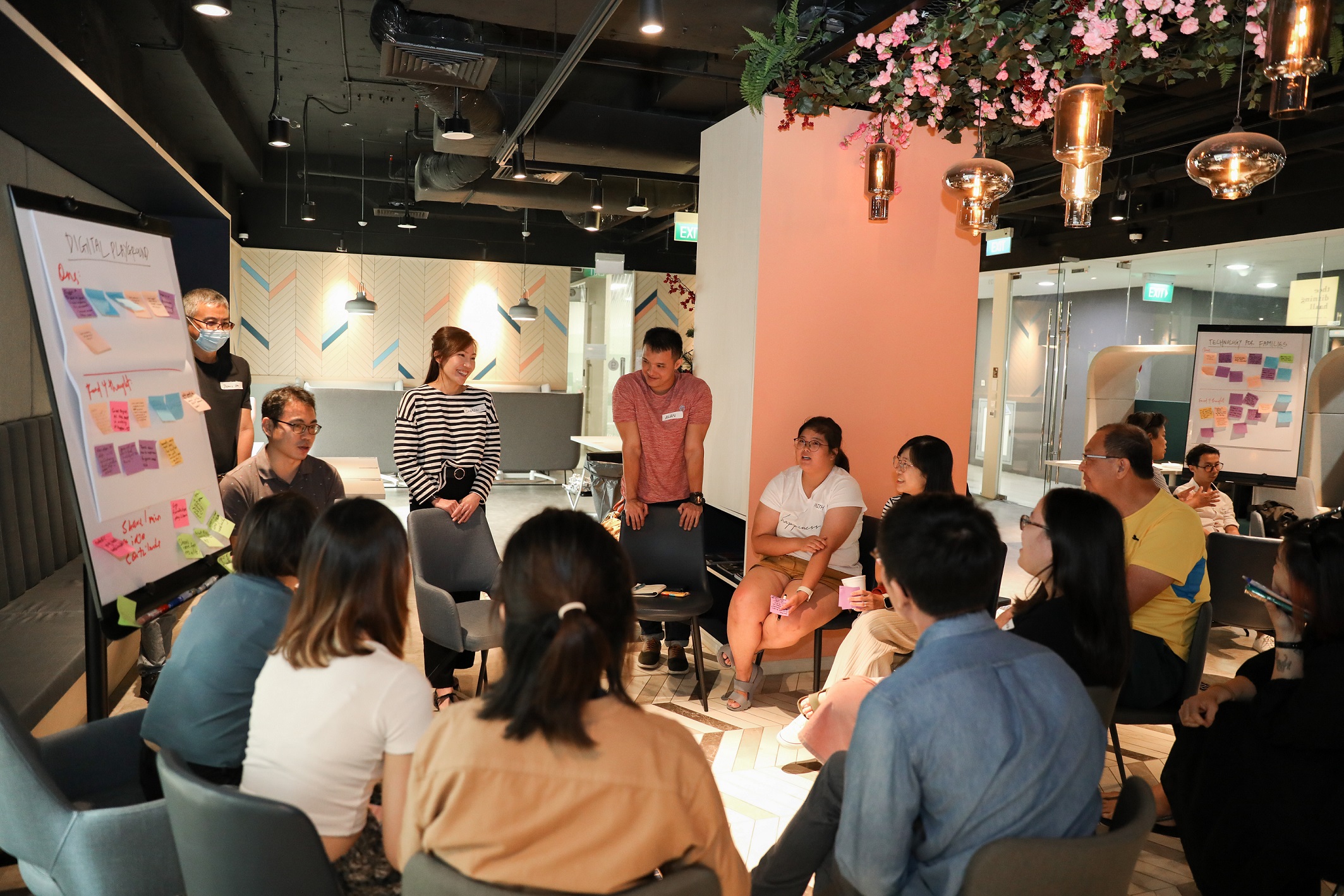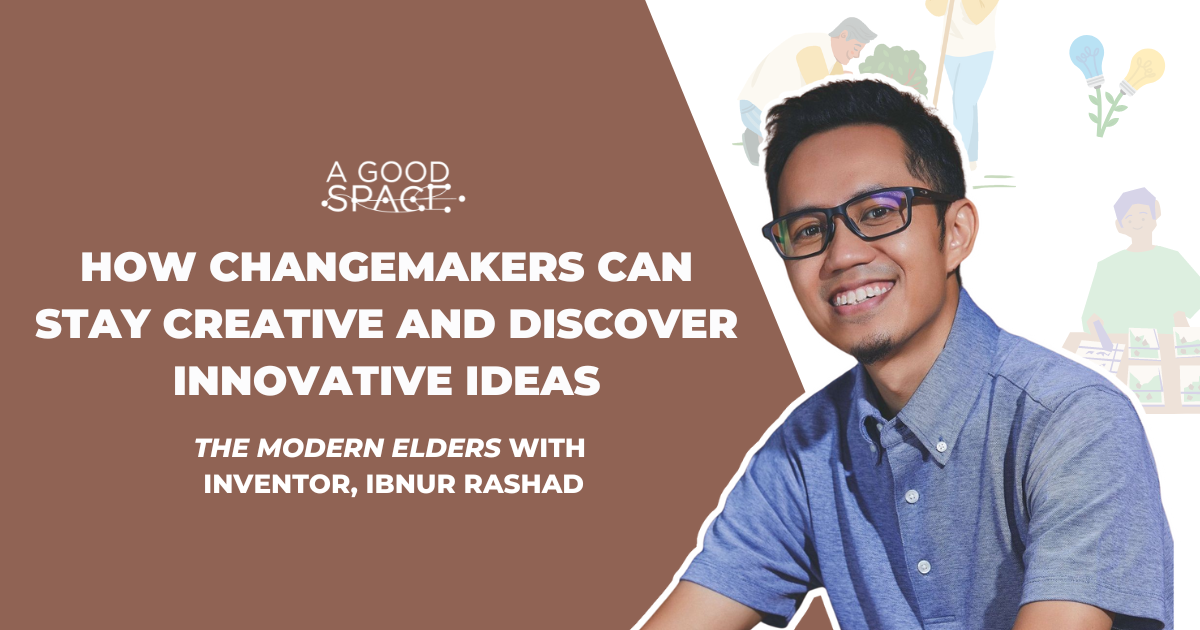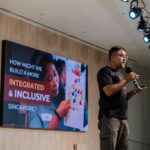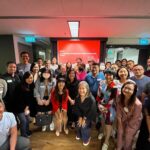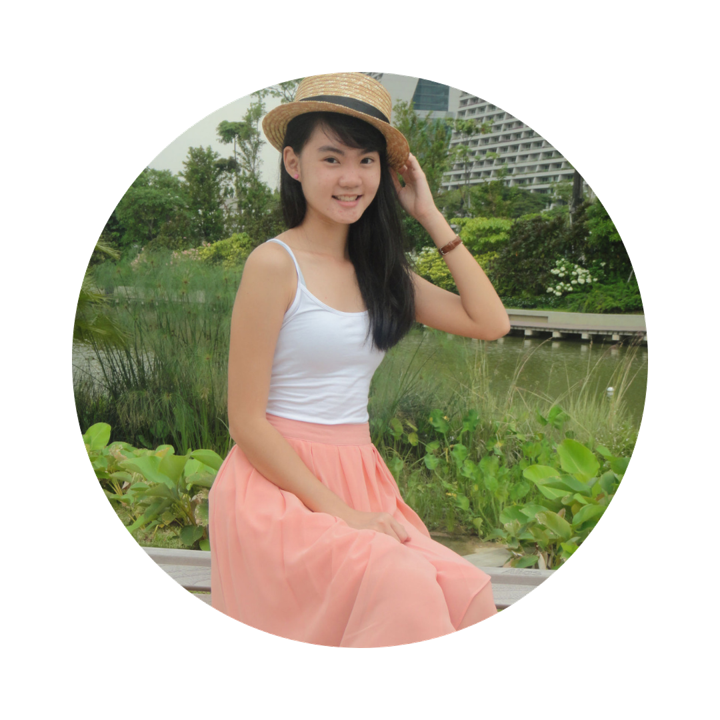“There is no such thing as a perfect parent so just be a real one.”
— Sue Atkins (parenting expert and television presenter.
No two parents have the same parenting style, just like no two children are the same. But the common thing that unites all parents is their love for their children.
To commemorate the United Nations Global Day of Parents (1 June), A Good Space is organising a Lived Intersections event on 19 June 2021 around the topic of parenting through the lens of intersectionality, in particular:
“What does the parenting experience look like across different communities?”
We are excited to hear from 4 parents from different communities:
- Parent with an Attention Deficit Hyperactivity Disorder (ADHD) child
- Parent who experienced child bereavement
- Single parent
- Rainbow parent (from the LGBTQ+ community)
Ahead of this event, we did some research to find out more about the organisations that are doing good work in supporting parents in these spaces.
Read on to find out more!
Community #1: Parenting with an Attention Deficit Hyperactivity Disorder (ADHD) child
ADHD is a neurobiological disorder characterised by impulsivity, hyperactivity, and the inability to sustain focused attention. Parents who first learn that their child has been diagnosed with ADHD are typically stricken by heavy denial.
Not only do parents with special needs children experience the denial phase, they are then often ridden with guilt and nagging doubts about their parenting abilities.
Parenting a child is already akin to an emotional roller coaster ride, with countless ups and downs. But, parenting a special needs child makes the ride a more turbulent one.
Due to a lack of public awareness about ADHD, caregivers of ADHD children may not receive adequate support and empathy.
The risk of burn-outs for families of ADHD children is very real, especially with harsh judgements, criticisms, and insensitive comments by others.
Fortunately, there are organisations that seek to support caregivers of ADHD children.
SPARK
One prominent organisation in Singapore is the Society for the Promotion of Attention-Deficit Hyperactivity Disorder Research & Knowledge (SPARK).
SPARK is a non-profit organisation set up in 2000 to raise public awareness of ADHD, support families with ADHD children to cope better with the disorder, and enhance the understanding and research on ADHD.
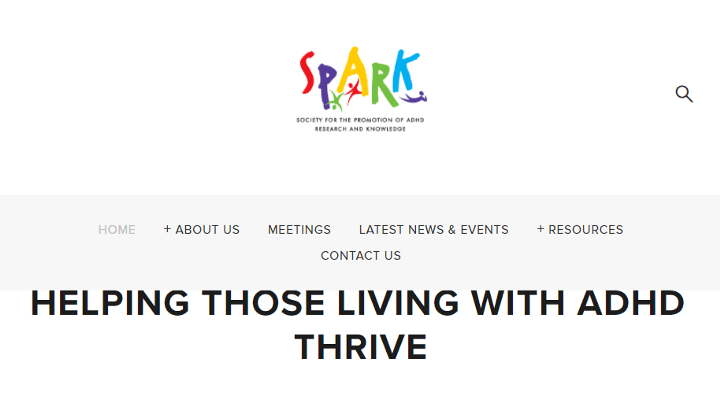
With the understanding that parents of ADHD children are often at a loss on how to raise their children, SPARK has compiled a comprehensive ADHD parenting guide (currently available in both English and Mandarin) to help them cope better.
SPARK has also compiled many other useful resources for teachers, schools, and ADHD children to navigate the education landscape.
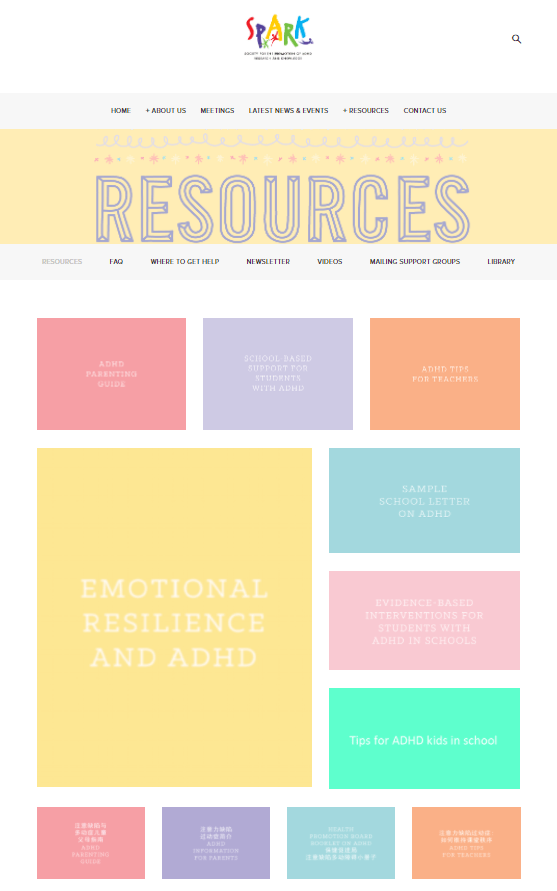
Interested participants can join SPARK’s monthly meetings on diverse topics surrounding ADHD, such as ways of coping with caregiver stress, improving ADHD children’s learning, and navigating the challenges of parent-child relationships.
For more information on SPARK’s work and resources to support your caregiving journey, you can visit their website at http://www.spark.org.sg/about-us.
You can also hear more from our panelist Ashokan Ramakrishnan, whose daughter had been diagnosed with ADHD. Motivated by his lived experience, Ashokan is now a passionate advocate at SPARK.
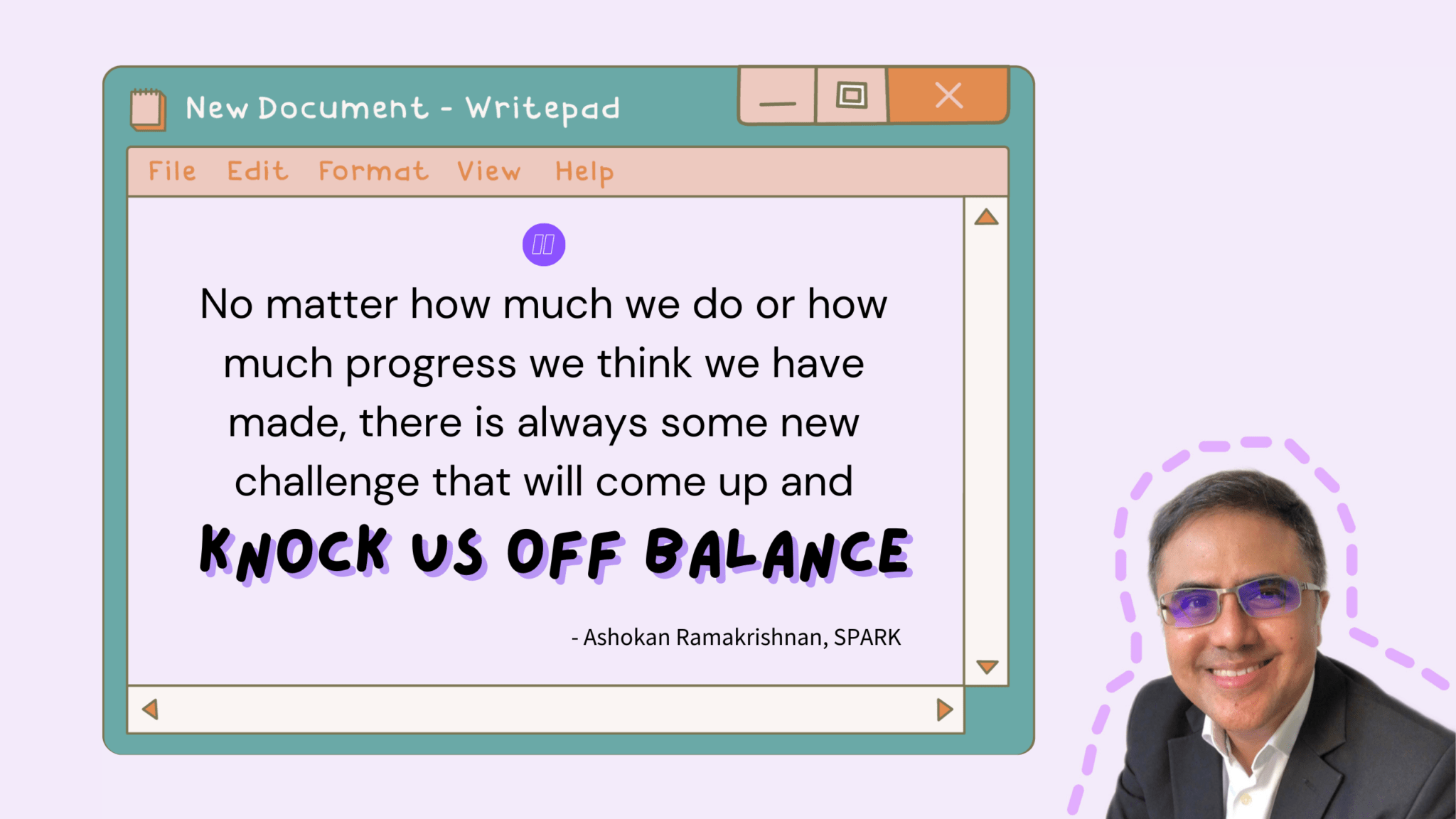
Unlocking ADHD
Unlocking ADHD is another organisation that seeks to empower ADHD individuals and their families to live life to the fullest.
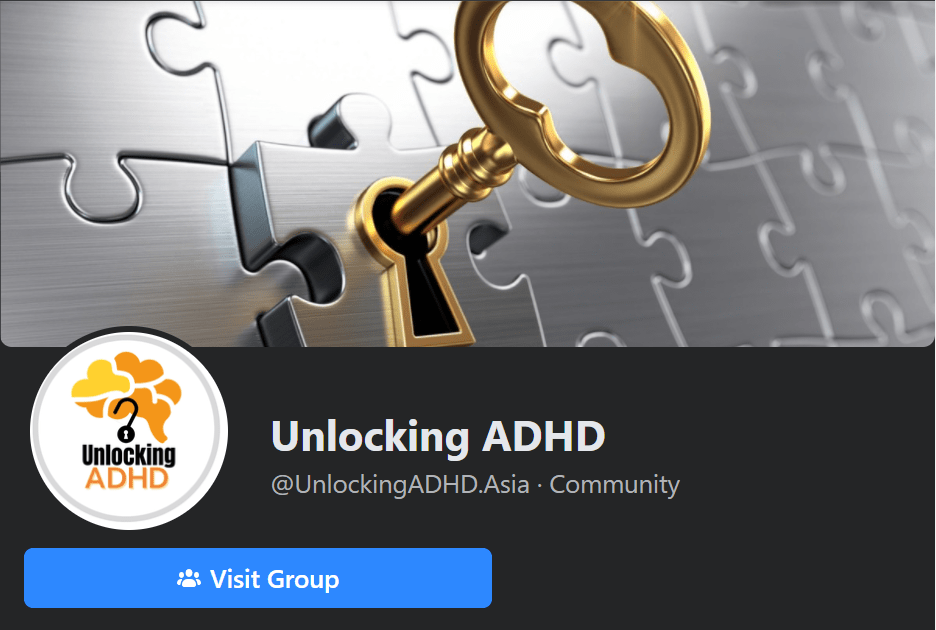
Unlocking ADHD curates articles and events about ADHD in Singapore for their followers, as well as provides resources to support ADHD individuals in managing their conditions.
You can learn more about their work here: https://www.facebook.com/UnlockingADHD.Asia/.
Little Steps
Another organisation that seeks to support ADHD children and caregivers is Little Steps. Little Steps provides a compilation of ADHD resources and support groups in Singapore.
For example, there is a compilation of links ranging from learning and medical support for ADHD children, ADHD-specialised doctors in Singapore, Facebook support groups for ADHD, mainstream schools catering to special needs, and more.
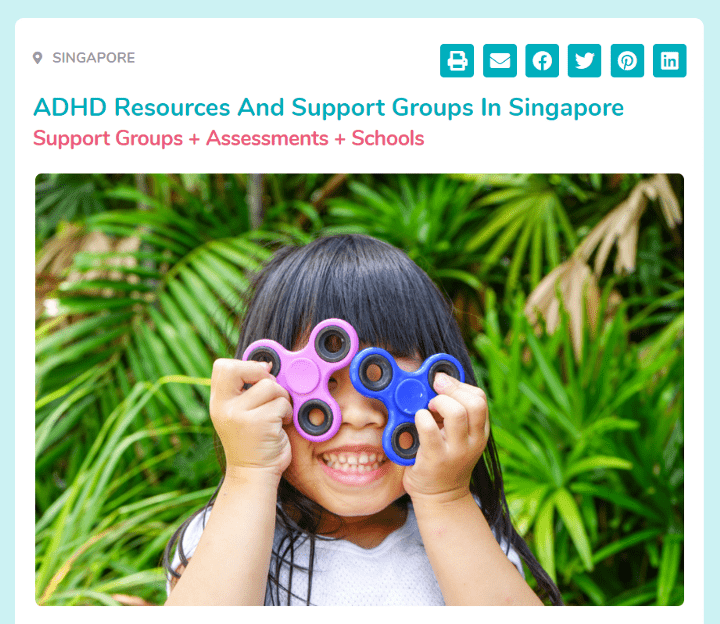
You can access these resources from their website: https://www.littlestepsasia.com/singapore/learn/special-needs/adhd-resources-singapore/
Community #2: Parenting after facing child bereavement
'There's no tragedy in life like the death of a child. Things never get back to the way they were."
Dwight D. Eisenhower, American president
Child bereavement, or the loss of one’s child due to death, can be due to various circumstances.
Bereaved parents are often overwhelmed with deep grief when they lose a child. Life might feel meaningless and come to a complete standstill for them.
They may suffer further pain when others show a lack of empathy through insensitive comments that trivialise their grief.
When bereaved parents return to the workplace, they then face another set of challenges. Their work performance often takes a toll, and without a strong support network, they often suffer from depression and anxiety.
Regardless of the type of child bereavement that parents in this community face, the one thing they all need is support to cope with their grief.
Here are some organisations that provide support for this community.
Child Bereavement Support Singapore (CBSS)
To support these parents amidst their grief and despair, Child Bereavement Support Singapore (CBSS) was established as a parents’ support network for bereaved parents, regardless of the type of child bereavement experienced.
CBSS aims to provide support and friendship through an inclusive befriending network for bereaved parents and monthly support meetings for them.
As an active advocate for greater support for bereaved parents, CBSS also conducts talks to doctors, nurses, and medical students to promote compassion for bereaved families.
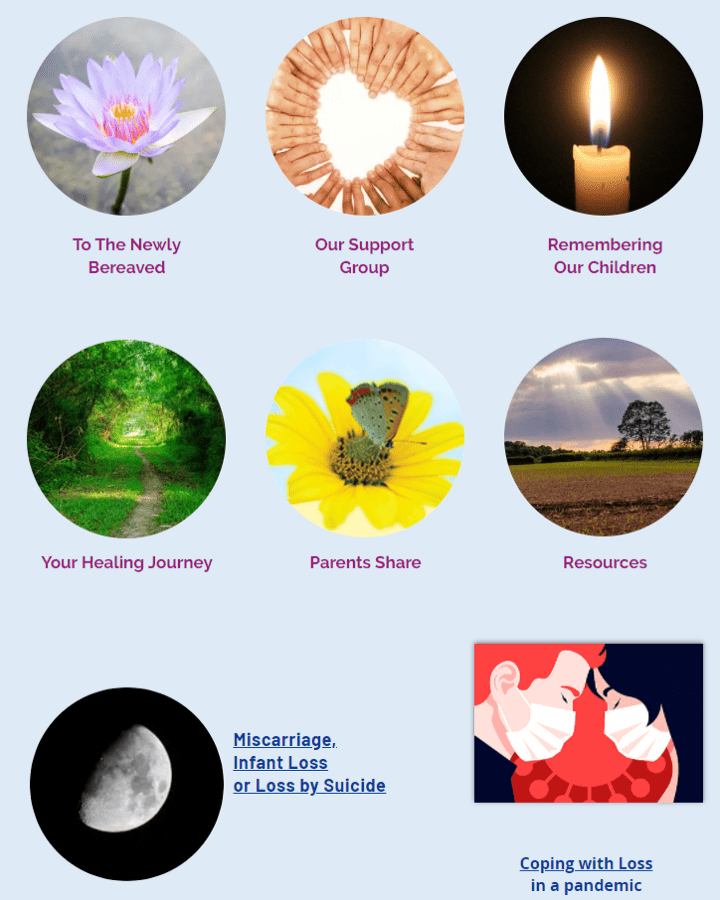
Bereaved parents or anyone who is interested in learning about the grief journey after the loss of a child can access a comprehensive compilation of resources on CBSS’ website.
The wide range of useful materials includes avenues for bereavement support, wellness activities, and guide books for bereaved parents.
To find out more, visit CBSS’ website at https://www.cbss.sg/ or contact them at help@cbss.sg.
Valerie Lim, another panelist for Lived Intersections, is no stranger to this grief and pain when her daughter passed on at the age of 16 months old. Her lived experience motivated her to establish CBSS.
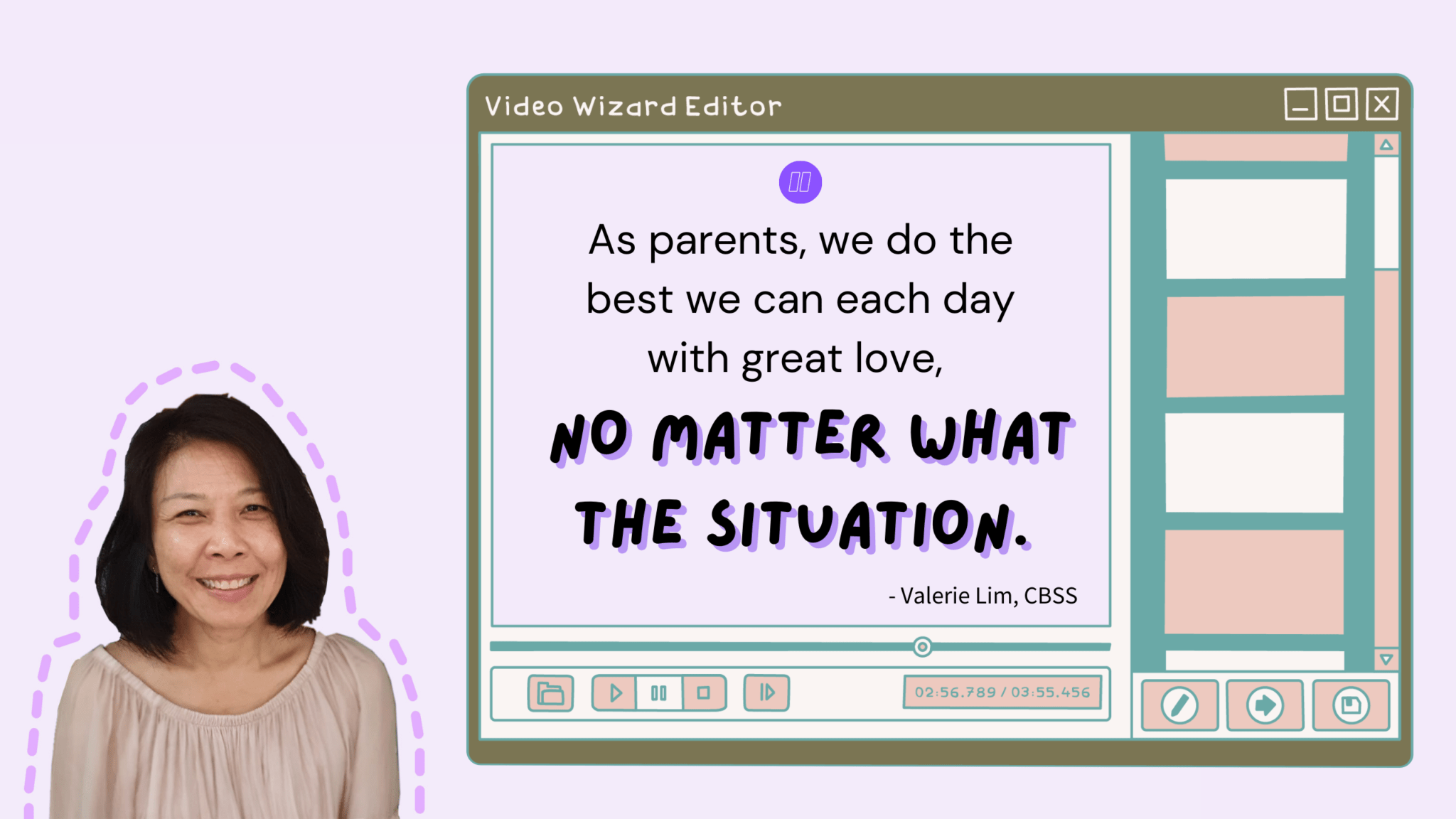
Angel Hearts
Another organisation that seeks to provide grief support and comfort for bereaved parents is Angel Hearts. Angel Hearts caters to parents who experience the loss of a pregnancy or infant.

Angel Hearts has a team of dedicated volunteers that repurposes pre-loved wedding gowns to dress babies with dignity for their final journey. These Angel Gowns are distributed free to their partner hospitals and funeral homes for bereaved families.
Angel Hearts also provides a peer support network for bereaved parents and empowers bereaved families to rebuild their lives.
To find out more about their grief management programmes and resources, visit their website at https://angelhearts.sg/.
PleaseStayMovement
Bereaved parents who experienced the loss of a child due to suicide can also turn to PleaseStayMovement. This advocacy group was founded under CBSS and works towards raising awareness and preventing youth suicide.
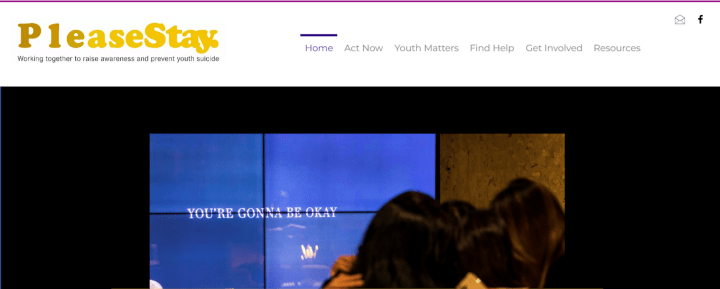
For bereaved parents, PleaseStayMovement provides grief support and other wellness and self-help resources to help them rebuild their lives. For distressed youths, there are also many useful resources and helplines to support you.
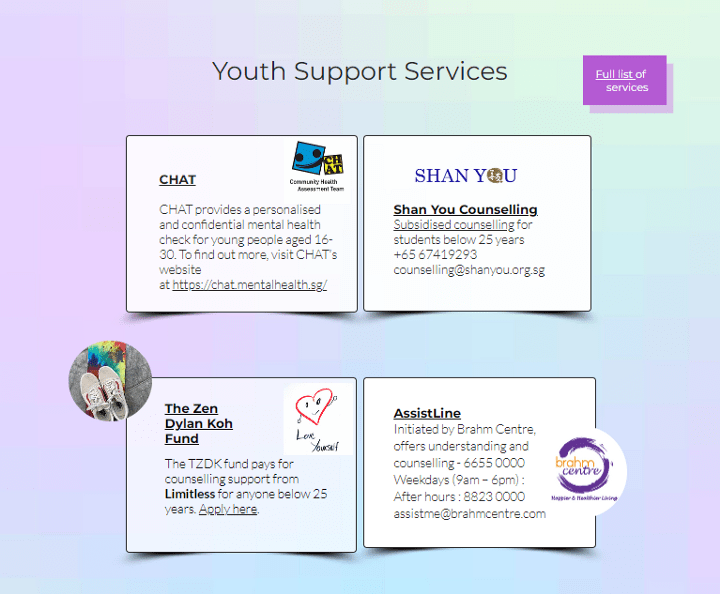
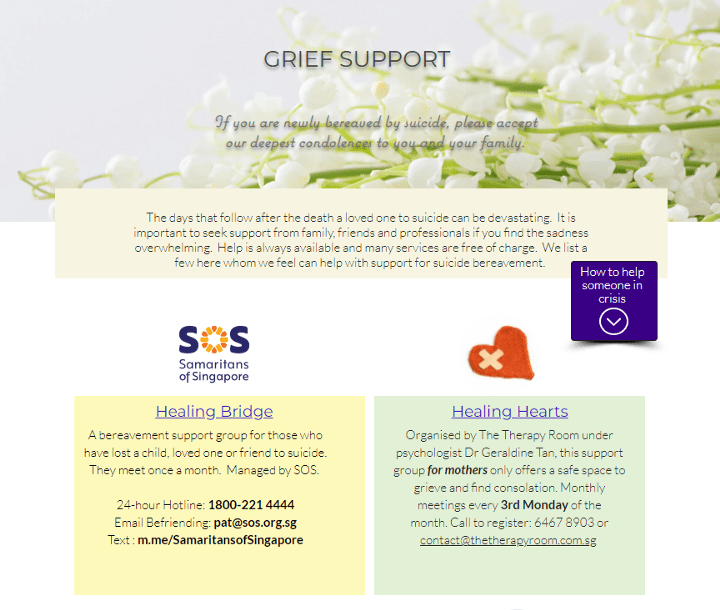
PleaseStayMovement also raises awareness on relevant social issues that impact youths, such as social media, bullying, relationships, and gender and identity. They also describe how schools and the healthcare sector can work towards enhancing youth mental well-being.
To learn more about youth suicide issues and access a wide variety of resources relating to grief management and youth mental well-being, head to their website at https://www.pleasestaymovement.com/.
Community #3: Single parenting
We often hear about how parenting journeys are stressful and demanding. What happens if you are a single parent navigating parenthood?
AWARE
#asinglelove
Single parents face many obstacles in various areas of their daily lives. The Association of Women for Action and Research (AWARE) is highly involved in this community and highlights some difficulties that single parents experience, such as issues with public housing access, employment, financial instability, childcare, and social exclusion.
AWARE, in collaboration with Kinetic Singapore and Daughters of Tomorrow, started the initiative #asinglelove.
#asinglelove aims to empower single parents through their services and programmes, advocate for more equitable policies towards single parents, and promote greater inclusivity towards them.
You can also find many useful information from their website, ranging from all relevant information on government parenting support schemes and housing policies, to important legal issues that single parents might encounter.
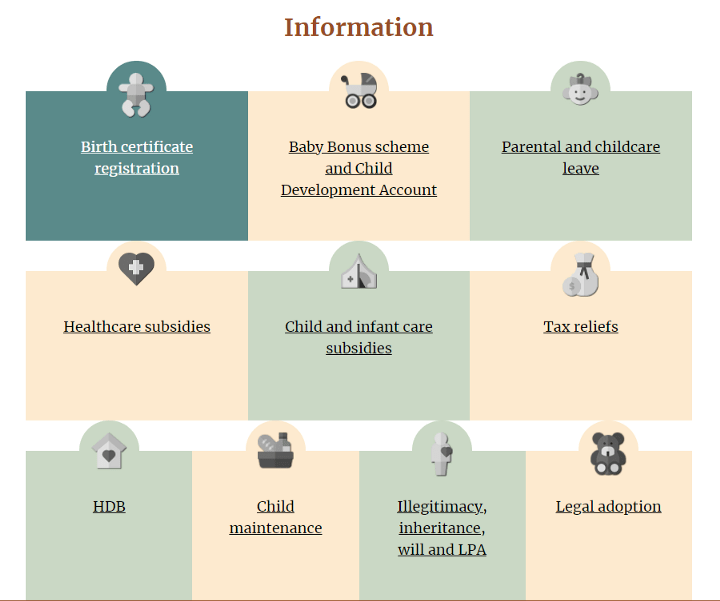
S.H.E. Project
Beyond #asinglelove, AWARE also runs the Support, Housing and Enablement (S.H.E) Project.
This project enhances safety and stability for low-income single-mother families by providing them with free housing for two years. AWARE also conducts extensive research and advocacy to seek long-term improvements in the home ownership process for single mothers.
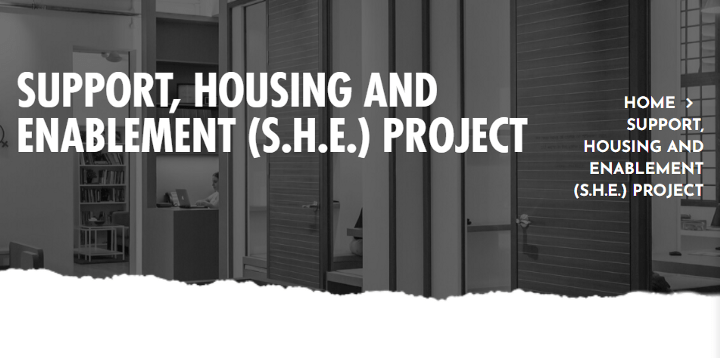
To access a wider range of resources and understand more about AWARE’s work in the low-income single-mother communities, you can visit their website at https://www.aware.org.sg/.
You can also hear first-hand about parenting experiences in this community from our panelist Rosilah Binte Abdul Hamid, a single mother of 2 teenage girls.
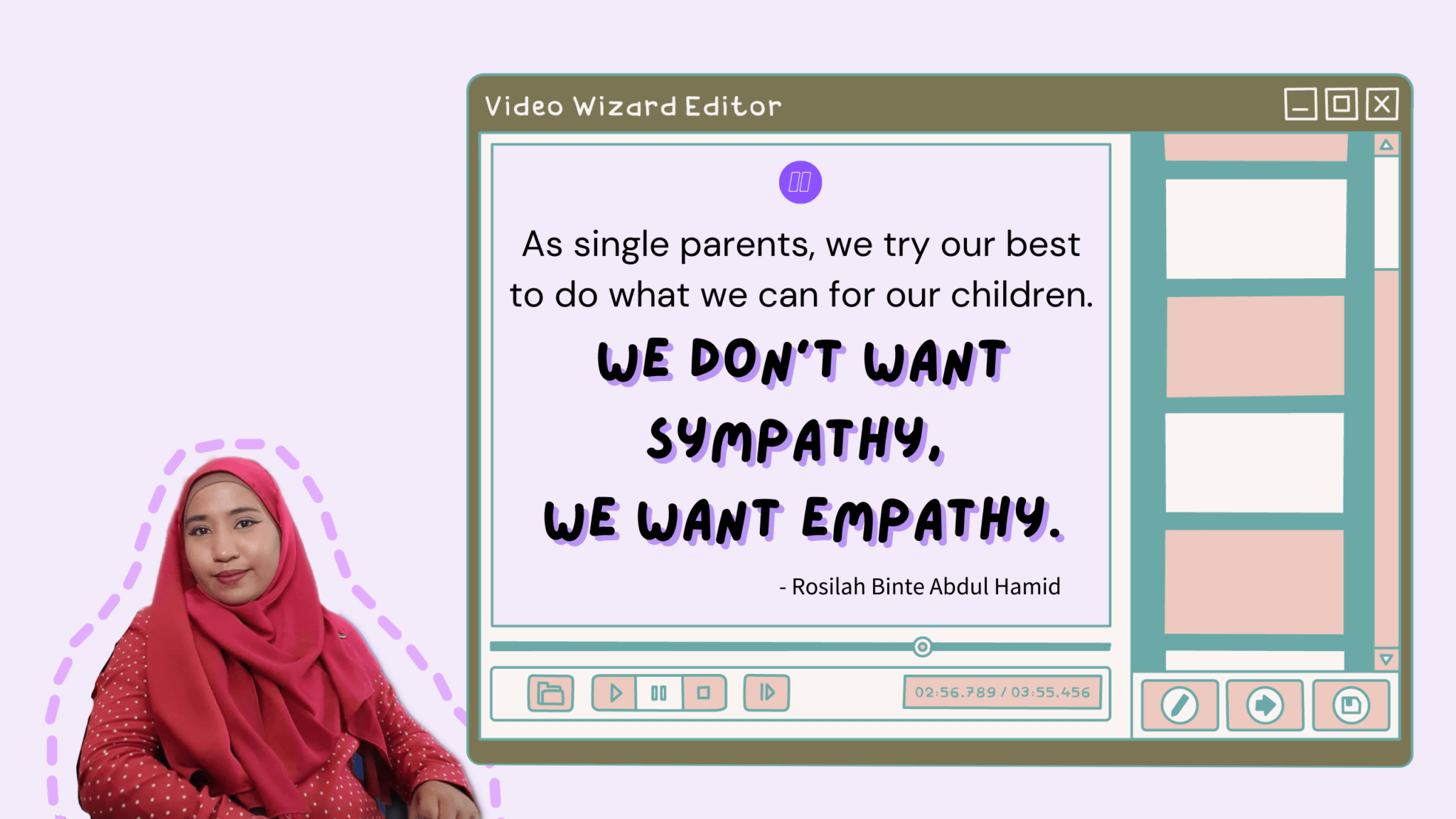
Community #4: Rainbow parent (from the LGBTQ+ community)
What might the experiences of a rainbow parent look like?
On top of dealing with the challenges of being a parent, many rainbow parents may face an additional layer of challenges. For example, some face multiple legal complexities with regards to housing, having their children recognised, and adoption processes.
There is little information available in Singapore to help rainbow parents navigate these complexities and parenthood. There are also numerous news articles about how rainbow parents might face stigma and a lack of acceptance from mainstream society.
Rainbow Parents SG
Fortunately, rainbow parents can turn to Rainbow Parents SG, an informal social group of LGBTQ+ parents living in Singapore. Rainbow Parents SG provides much-needed peer support and information to rainbow parents here.
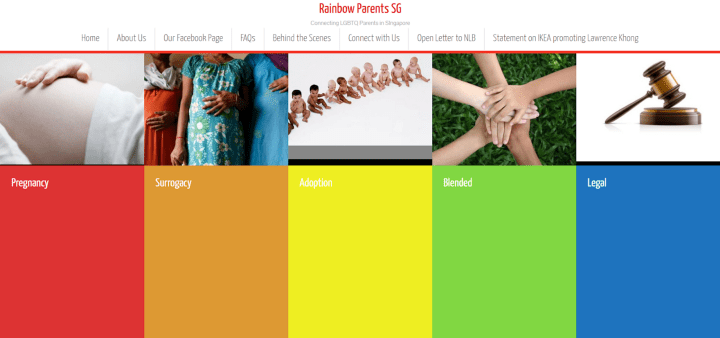
Other than providing information relating to adoption, education, legal framework, pregnancy, and surrogacy, Rainbow Parents SG is also an active advocate for equal rights for rainbow parents.
They highlight possible areas of discrimination against rainbow parents and hope to shape societal attitudes with regards to alternative family structures in a more positive manner.
You can learn more about their work at http://www.rainbowparents.sg/.
Same But Different
Another helpful resource for rainbow parents is the Same But Different project, a non-profit project that brings free and easily understandable legal advice for LGBT couples and families in Singapore.
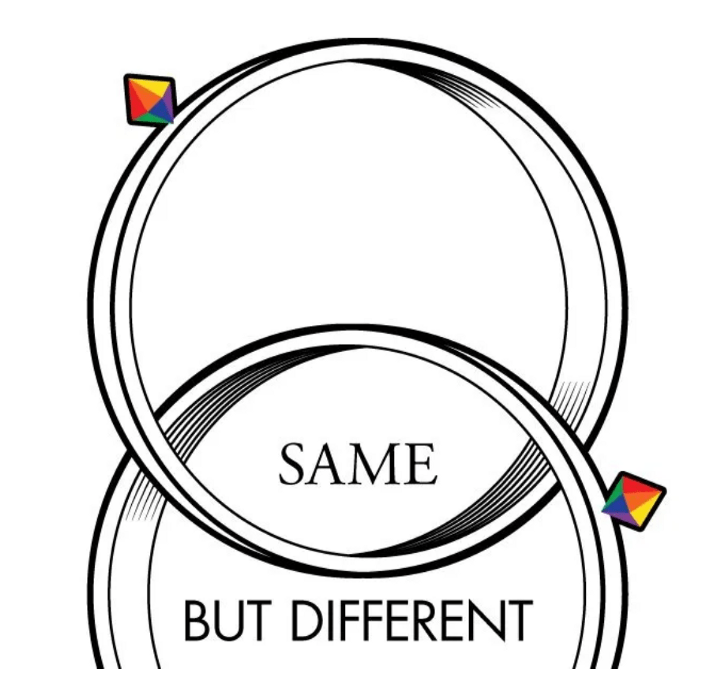
To download their free legal guidebook or find out more about Same But Different, visit their website at https://www.singaporelgbtlaw.com/sample-page/.
To hear more about what rainbow parenting is like, you can also have a conversation with Zuby Eusofe, our panelist from this community.
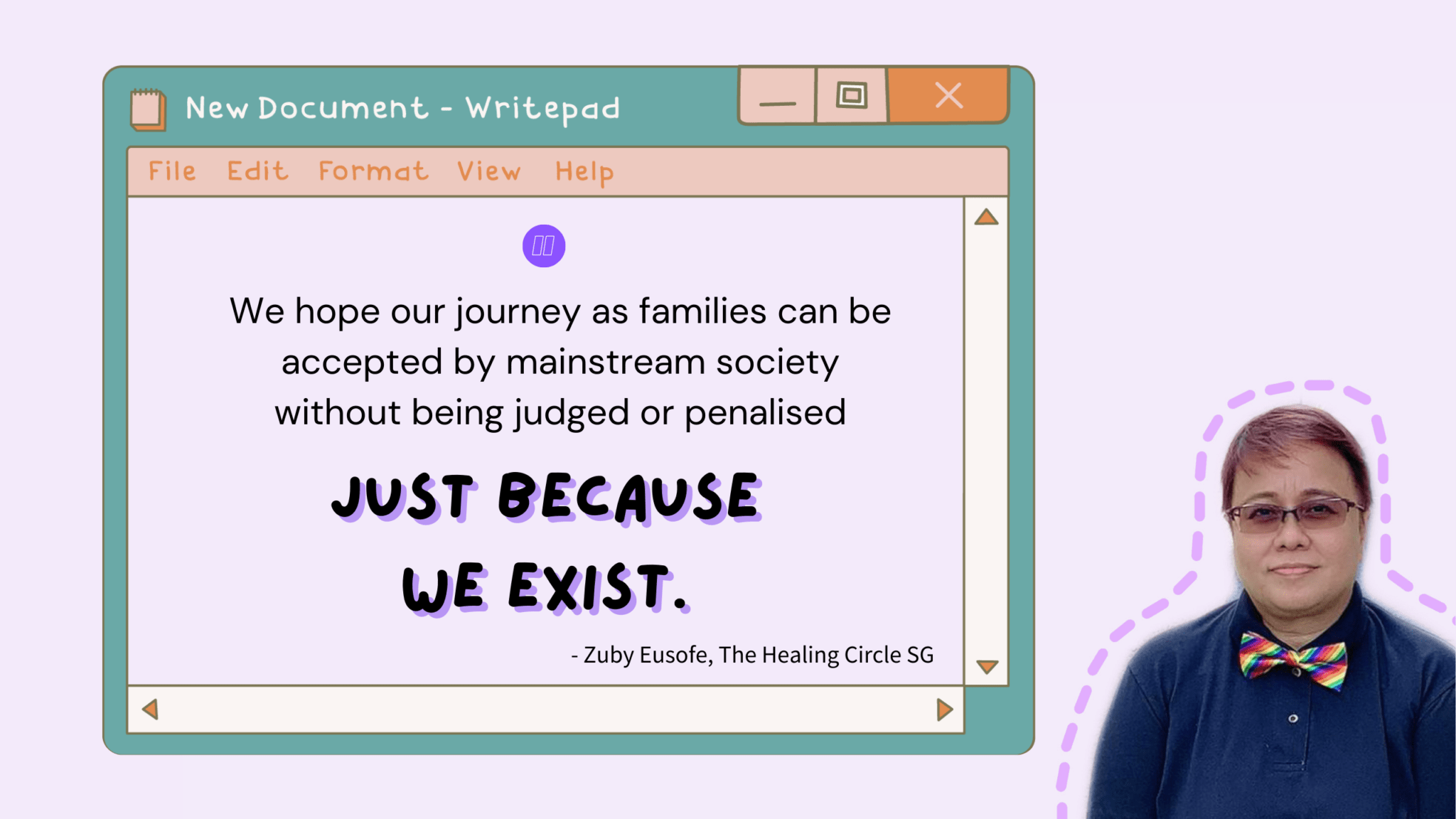
The Healing Circle SG
Zuby faces a further layer of complexity — struggling to reconcile her religion with her sexual identity. To support and empower fellow queer muslims in their process of expressing themselves and embracing their spirituality, Zuby founded The Healing Circle.
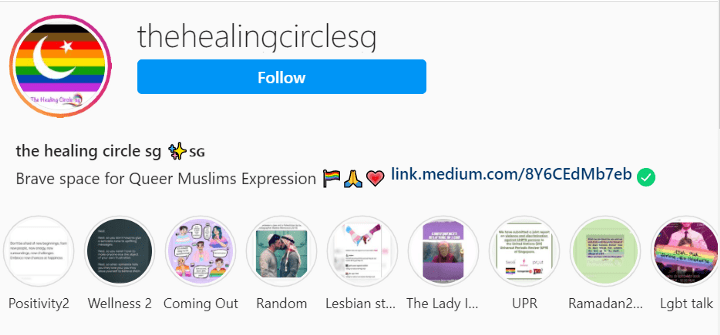
The Healing Circle provides a safe space for LGBTQ+ Muslims to heal, form support networks with one another, and find hope amidst their struggles.
Beyond focus group discussions and group therapy, there are also certified counsellors who provide affordable counselling services for the queer Muslim community. For example, the counselling rates are $5/hr for students and $10/hr for young working adults.
You can drop a Direct Message (DM) on Instagram (@thehealingcirclesg) or email them at thehealingcircle.sg@gmail.com to find out more.
Besides the above organisations, there are also other support networks and resources for rainbow parents, such as:
- Counselling and Care centre — a non-profit organisation that provides quality counselling. Known to be LGBTQ+ friendly
- Pelangi Pride Centre — an LGBT community space and resource centre
- Sayoni — a volunteer-run organisation that supports and empowers queer women
- TransgenderSG — a web resource for the Singaporean trans community
Join our Conversation
Parenting is a difficult journey, but it does not have to be a lonely one.
If you are a parent, having a greater understanding of parenting challenges in different communities can empower you along your own parenting journey.
More importantly, we welcome you to join the Lived Intersections conversation on 19 June 2021 to meet other like-minded parents and possibly form your own support groups.
If you are not a parent, we also warmly invite you to join our conversation to gain a deeper appreciation of parenting experiences in different communities.
We promise you an insightful discussion with our panelists, who will be sharing more about their struggles, parenting experiences, and reflections during the Lived Intersections event.
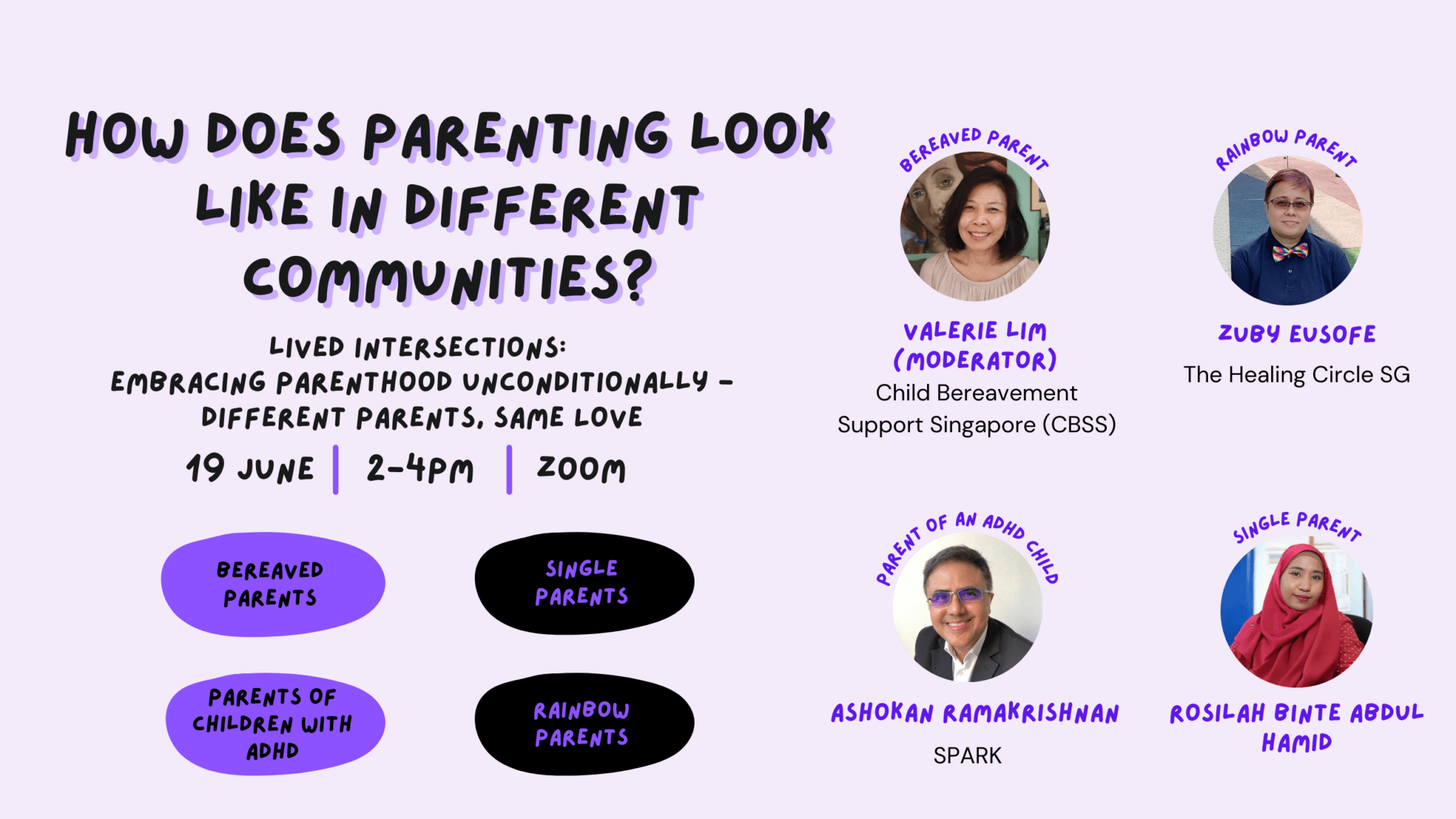
Sign up here to join the Lived Intersections conversation: https://livedintersections02.peatix.com/
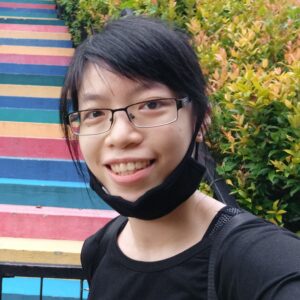
Canice Ho
Canice is a Programmes and Special Project Intern at A Good Space. She finds joy in the simplest things, like taking long hikes in nature and enjoying a good ice cream.
